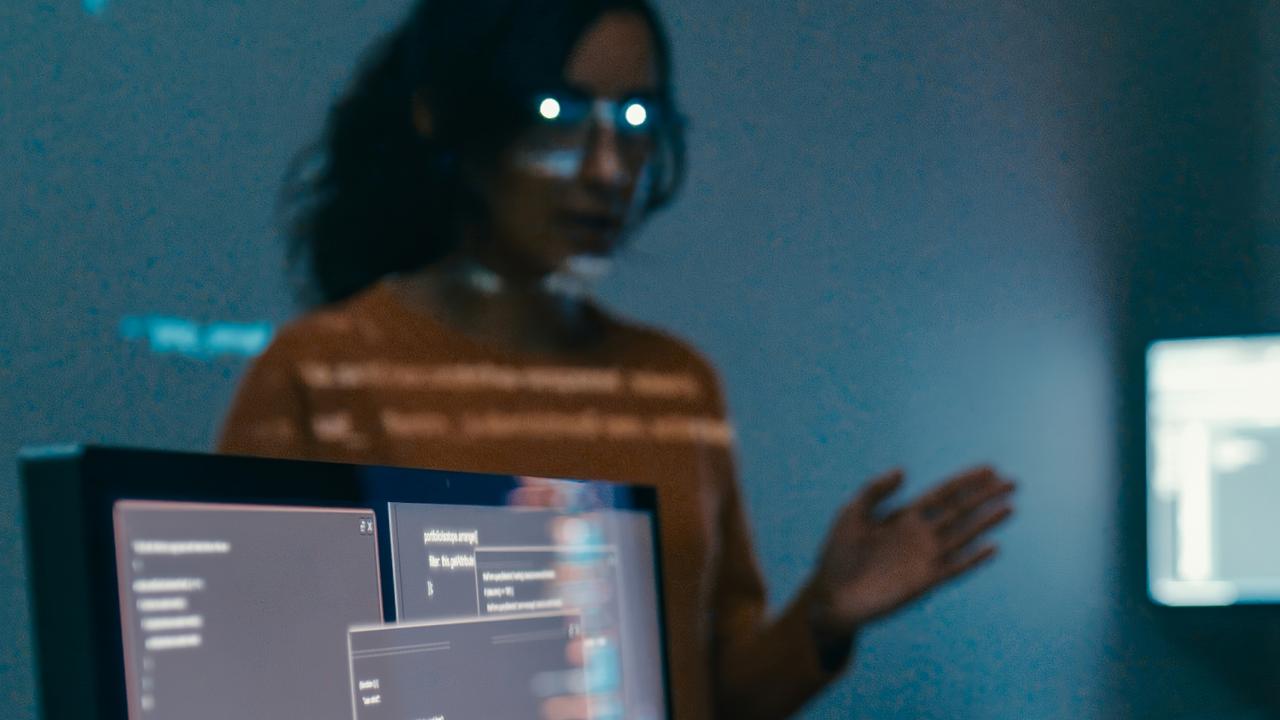Meet the Aussie tech firms taking over Silicon Valley
From robots for sick kids to artificially intelligent job interviews, Aussie tech start-ups are pitching unusual businesses in Silicon Valley and kicking goals on the global stage.
Design
Don't miss out on the headlines from Design. Followed categories will be added to My News.
Exclusive: Just down the street from San Francisco’s iconic Transamerica Pyramid, and a stroll from Union Square, lies a packed communal office bustling with coffee cups, stickered laptops, transparent walls, and naked Australian ambition.
It’s a launch pad for Australia’s latest Silicon Valley invasion, where 10 start-ups and “scale-ups” are meeting contacts, creating networks, hiring locals, and charming their way into the American market.
And, according to one founder who built a base here, it’s putting Aussies among the world’s biggest tech entrepreneurs.

“If you take the train and walk here in the morning, you’ll probably walk past 20 to 30 millionaires all in (software),” Sydney-based Valley veteran David McKeague said.
“Slack is here, Salesforce is here, Workday is up here, the Bloomberg venture fund is here. This is the beginning of a new wave.”
And Australian companies are seeing the benefits of it.
The country’s top 10 start-ups have now attracted more than $500 million in investment for innovations in everything from financial services to graphic design.
Australia has also claimed its second “tech unicorn” after Canva hit a valuation of more than $1 billion, following the path of the now $50 billion firm Atlassian.
But while Aussies are successfully invading Silicon Valley, much like they did to Hollywood a decade earlier, there are pitfalls too.

Trade experts and veterans alike say Aussies making the jump to the US should aim high and keep their accents, but be prepared to make a permanent move, refine their pitch, and drop self-deprecating humour.
Many of the Aussie tech firms testing the US market are doing so through Austrade’s Landing Pad in San Francisco. Based at a WeWork office just metres from the city’s main street, it looks like a scene from the Silicon Valley TV series.
A neon installation welcomes you to the loft-style lobby; couches, cushions and old-style booths ripped from Instagram are available for meet-and-greets; and the remaining level is a rabbit warren of long and short-term offices where entrepreneurs and their teams code, create, organise and pitch themselves.

But Australian Trade and Investment Commission deputy consul general Odette Hampton said even though Austrade’s base is in the heart of San Francisco, she doesn’t want businesses remaining inside for long.
“It’s more than just a desk. It’s not just office space,” she said.
“We want you to pound the pavement, we want you to be out there networking and building your network. You’ve gotta hustle. You need to be at as many different events and meetings and talking to as many people as you can.”

Almost 90 business have been through Austrade’s San Francisco Landing Pad since it opened three years ago in what its market entry service director David Brown says is now a “well-trodden path” for ambitious Australian entrepreneurs.
“The common path for Aussie founders is to come to the Bay Area and immerse themselves in the innovation and the investor space here,” he says.
“Obviously, there’s a concentration of tech companies that is unmatched anywhere in the world so you can really achieve so much more.”

Companies selected for three-month tenures at the Landing Pad have included successful agricultural tech firms AgDNA and FluroSat, artificial intelligence forecaster Faethm, KoalaSafe that produces child-safe wi-fi routers, machine learning, truth-detecting firm Really Really, and Aubot, which creates telepresence robots for ill children.
Brown says each tech firm is chosen based on vision, scalability, differentiation, market fit, and traction, which requires companies to have a product in market before they come to the US.
Their 90-day stays include access to an entrepreneur-in-residence, workshops on establishing and operating a company in the US (“homework,” as Hampton calls it), and introductions to a network of mentors.
The Australian American Chamber of Commerce also holds regular events in the city, as does the San Francisco-based Aussie Founders Network, an organisation with a goal to “build a network of Australian-founded technology companies whose valuation is $100 billion”.
Hampton says these ready contacts, along with the Landing Pad’s growing alumni, was proving to be one of its biggest drawcards.
“Sometimes our role is just to put people in the same room so they can help each other out and solve each other’s issues,” she says.
Snappr co-founder Matt Schiller says it gives Aussies a “soft landing” in a foreign market that can feel overwhelming at first.
“To have other founders going through similar experiences is not to be underestimated,” he says.
“When something’s not going right, it’s good to get a reality check by having a community of other people doing the same thing who can really normalise the trials and tribulations.”

Snappr, which has become the world’s largest on-demand photography service, “didn’t even have a US bank account” when Schiller entered the program in 2017. It has since launched in more than 100 US cities, and remains headquartered in San Francisco.
Schiller says being Australian was far from a disadvantage when pitching for clients and investment in the US, and may have even helped him sell the idea.
“It sounds trite but people are a little charmed and disarmed by the Australian accent,” he says. “That definitely doesn’t do any Aussie founders any harm. Dropping a little bit of slang, a few Australianisms here and there goes a long way.”
But there are potential pitfalls for Aussies too.
McKeague joined the latest Landing Pad intake as co-founder of Curious Thing, which uses artificial intelligence to analyse job interviews.
But the Sydneysider has been pitching start-ups in Silicon Valley since 1992 and says Australian firms often make the mistake of trying to sell broad, wide-ranging services in the US market rather than focusing on a targeted niche.
Aussie firms should also take care to learn American keywords and ditch the small talk.
“In San Francisco, the typical meeting time is 30 minutes so there’s no time for chitchat,” he warns. “You don’t start with the weather because if you don’t hit the point they will tune out. We need to learn to speak more quickly.”
MORE NEWS:
Aussie shares suffer $70b wipe-out as Wall St plunges
‘Blow to democracy’: ABC slams court ruling
‘Everyone’ will get coronavirus: doctor
Australians also need to be very careful with humour when selling themselves too, Brown warns.
“Aussies are quite self-depreciating and we will make fun of ourselves but, no, you can’t do that here because they take it seriously,” he laughs.
“We’re endearing but when you’re in Silicon Valley and you’re hustling and you’re trying to compete for investor dollars, you have to network like an American. You can’t be laid-back. You have to be ‘hands out’, this is what I do, this is why it matters, this is why you should care.”
And maybe, with an expanding network of tech successes, Australians will get the last laugh.



